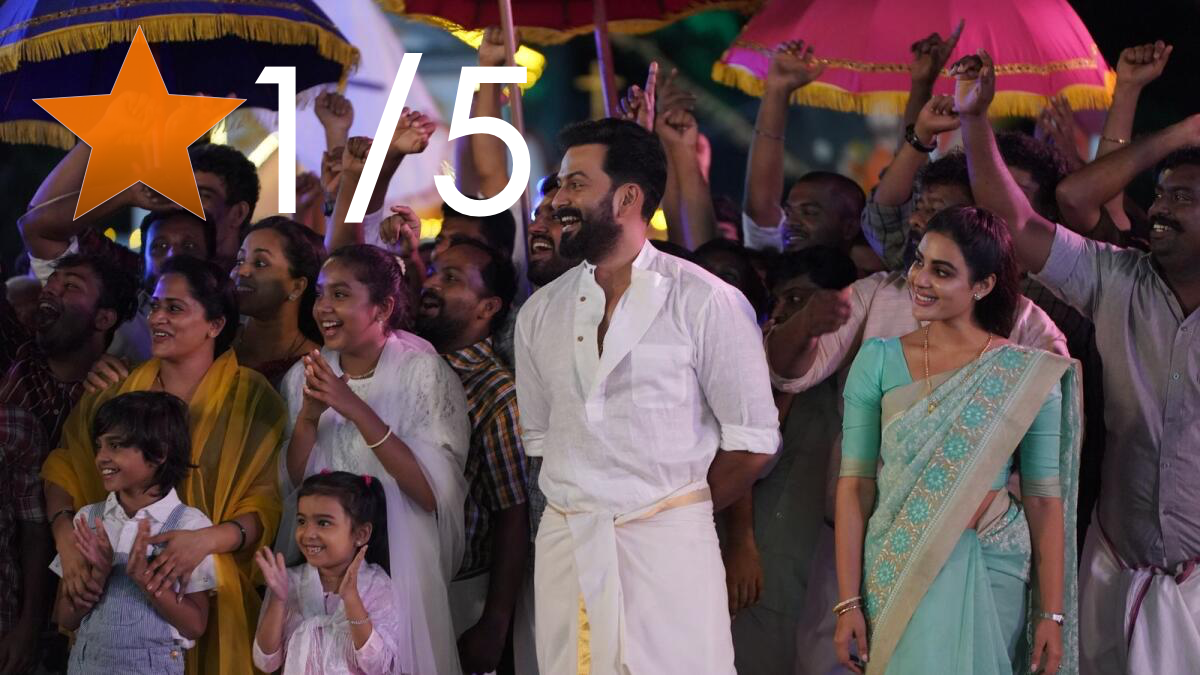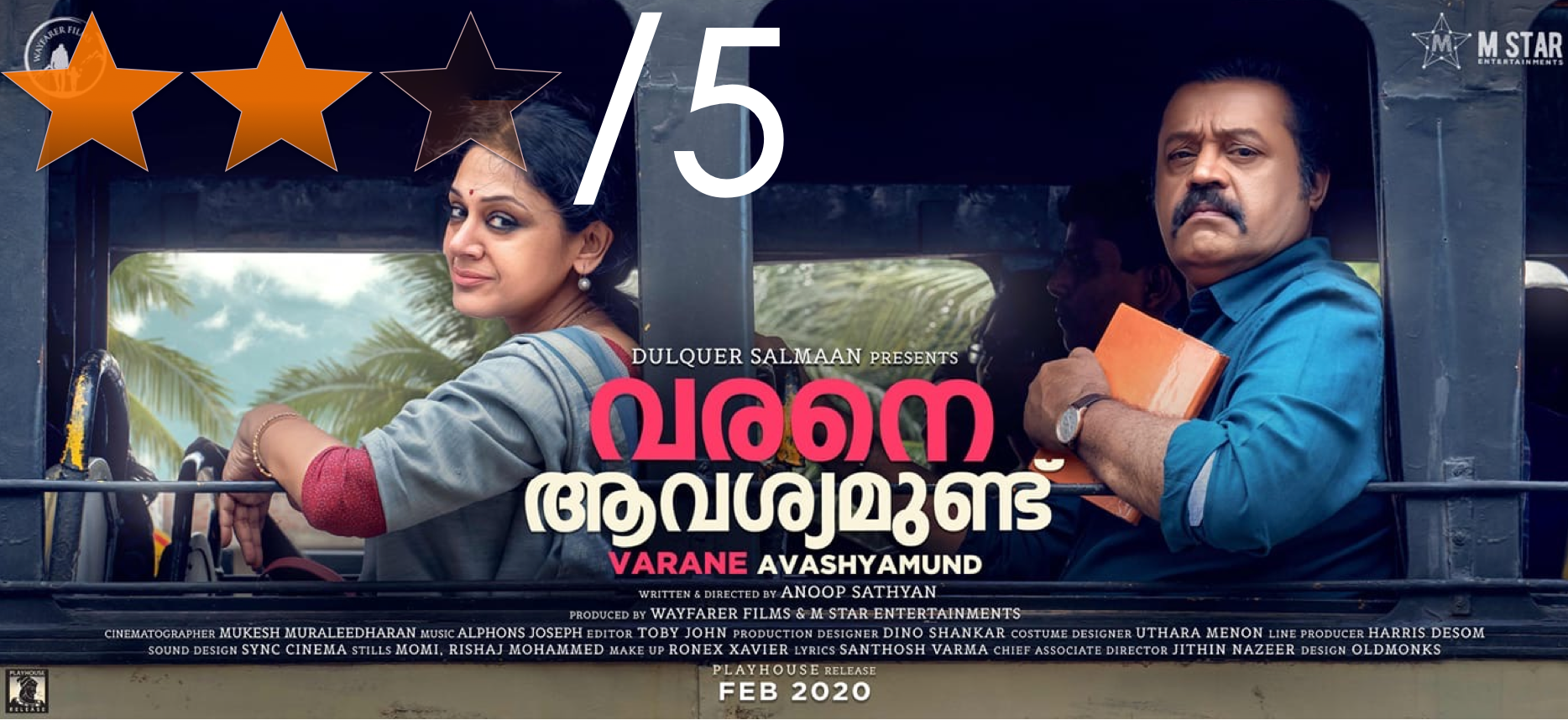The Kerala Government continues to refuse demands for withdrawal of the 7th Standard Textbook which promotes Atheism and questions God.In completely unrelated news, the Monsoon has literally kept out of Kerala, the state football team failed to reach the Santosh Trophy semi-finals and K Karunakaran turned 90.
The message from up above is clear. God Exists and he is punishing us!
On a Personal Note
BD‘s Comment on the textbook post read,
I think the thought behind the text book and the way its been designed is really good, enabling children to think about what is happening around them. But the biggest enablers, in this scenario will be the teachers, as you were telling me. All the lessons, in this text, are very idealistically put and the best in class if an objective discussion can be stimulated in the classroom. That would be wow! But thoughts can be directed to a particular direction, if a teacher wishes so. There is a thin line.
On a personal note, BD’s comment above is what I feel about the text. Whether the text will be effective or whether it will trigger positive changes is dependent on the teacher. There is a plenty of scope here, and hence it can go either way when a teacher interprets the text. I hope that sense prevails, that the sanity we lost in our debates is regained in our classrooms.
On a political note, if teachers are interpreters, shouldn’t they be appointed based on merit? by the Public Service Commision?. Why does the Catholic Church, the NSS, the Muslim trusts and SNDP insist that they appoint their own teachers, whom the state government pays with my tax money? Wouldn’t the teachers appointed by the Religious and Caste organizations interpret textbooks in a way favourable to those interests? Shouldn’t that stop first?

Eyes of 12 year olds, voice over by history
I have always considered TV Chandran’s 1995 movie, Ormakalundayirikkanam (It is important to have memories) a classic. The uniqueness of the movie is the fact that, it refuses to talk to anyone who doesn’t remember, and you need to have an understanding of history to make sense of the montage. The life around him seen through the eyes of Jayan, a 12 year old boy, in the 1957-59 time period, around the echoes of the liberation struggle with characters including Tharakan (Bharat Gopi), Tailor Bhasi (Mammooty) and even a large python. The movie does not make judgements, nor does it claim that 1959 was a CIA funded intervention, but it makes you uncomfortable by asking questions which you tend to hear only if you have an understanding of history. It is Critical Pedagogy for the audience, through the eyes of a 12 year old and through the voice of history.
The new 7th Standard Textbook has triggered debates and agitations in the state with a breadth similar to that of 1959, though nowhere near in intensity or scale. Major players in the Caste-Religion-Politico nexus of the “Right front” have come together and a joint struggle encompassing the Muslim organisations in the north, the Catholic Church in its 11 assembly strongholds and the Nair Service Society(NSS) in Travancore seems very much in the cards – perhaps within a few weeks.
The condemnation of the state government and the CPM by the NSS in its Budget session last week was perhaps the strongest direct warning about the consequences that await the Left front in the 2009 elections to Parliament.
And because warnings are not lullabies, it is important to figure out how potent they are. This is where it is very important to have memories
2009 Elections and Political expediency
These caste organisations are not potent enough and this is why I feel so –
In 2006, the Left front swept the assembly polls winning 100 of the 140 seats. This is what it looked like,
Across the state stalwarts of the outgoing government are facing defeat.Muslim league is facing defeat in all its bastions,fallen include its general secretary P.K.Kunhalikutty.The three top leaders of league Kunhalikutty,Muneer and Basheer have been defeated at home.Eleven time winner Gauriamma has been defeated,Balkrishna pillai,Murali and around fifteen ministers have lost,M V Raghavan and T M Jacob have been defeated.It is as if Keralites have chased and defeated the bad apples.In the southern districts Congress party has been wiped out,forts have fallen across the cochin belt and in Malabar,muslim league is facing its worst nightmare – malappuram the league fort has turned red.
But there were 2 results I found interesting. General Secretary of SNDP yogam (the largest caste organisation in the state), Vellapally Natesan had announced a HIT LIST of candidates whom the yogam will selectively defeat. Topping the list was two names, two Congress candidates – K C Venugopal and P C Vishnunath, both of them contesting in constituencies where the yogam held sway. Despite the “RED” wave that swept the state, both the Congress candidates won. Yes they did.
Insider logic said the NSS had stepped in to make sure that these two Nair candidates won. By that logic, NSS would have been the most potent force in 2006 elections, making a Nair candidate win despite a political and caste wave. We can verify that with the election result of R Balakrishna Pillai, the strongest NSS insider who contested from his pocket constituency of Kottarakkara. Balakrishna Pillai lost badly.
Read it along with the results from the so called Catholic belt and the Muslim belt and you see a Kerala different from 1959.
The Trivandrum Lok Sabha result is just one instance of this surprising change. When Pannyan Ravindran of the CPI won the election by a hundred thousand votes, someone who was not a “Nair, Nadar or Nattar” was winning the state capital for the first time. (don’t give me Karunakaran’s example).
My point is, 2009 is not 1959. The caste-religion nexus has recent history against it, and the Congress or the CPM don’t need to be afraid of them the way they are. Despite this I wonder why V S Achuthanandan nor Pinarayi Vijayan has the spine nor the political acumen to declare that the government will not succumb to the religious right nor the caste organisations. They have a Kerala that will more receptive to such a message, than the scheduled outcries from Changanassery and Thrissur.
Critical Pedagogy and Curious new names
One thing I like about the bearded leftists is the curious names they throw up every time. We’ve heard of Bakunin, Bretch, Neruda, Camus, Gorky, Foucalt, Chomsky,Trotsky from the bearded lot. The non-stop debates in the past 2 weeks across the 9 malayalam news channels throwed up another name – Paulo Freire. It seems the new textbook is modeled based on his vision of education.
Without going into details of Critical pedagogy which the left intellectuals seem to be so sure of and I don’t know head or tail of, I would like to touch upon an interesting pattern. The last left front government in the state made an audacious move to democratize development. Even the worst critics of the “Janakiya Asuthranam” [People’s Plan] cannot deny the grass root changes it brought about. Every suburban centre or rural outpost will have something to point out, like a bridge or a small road or a water harvesting tank that materialised through the people’s plan. And Paulo Freire has ideas on democratization of education,
This is one of the few attempts anywhere to implement something like democracy as an educational method and not merely a goal of democratic education. Even Dewey, for whom democracy was a touchstone, did not integrate democratic practices fully into his methods, though this was in part a function of Dewey’s attitudes toward individuality. In its strongest early form this kind of classroom has been criticized on the grounds that it can mask rather than overcome the teacher’s authority.
More challenging is Freire’s strong aversion to the teacher-student dichotomy. This dichotomy is admitted in Rousseau and constrained in Dewey, but Freire comes close to insisting that it should be completely abolished. This is hard to imagine in absolute terms, since there must be some enactment of the teacher-student relationship in the parent-child relationship, but what Freire suggests is that a deep reciprocity be inserted into our notions of teacher and student. Freire wants us to think in terms of teacher-student and student-teacher – that is, a teacher who learns and a learner who teaches – as the basic roles of classroom participation.
The Minister for Self Government in the previous left ministry was said to be having “Power to eventually destroy Power”, as in centralised state power. It works well with the CPM’s ideology of working within the Indian republic to eventually destroy it. So is the textbook another of the lefts attempts to change an educational system little by little, so that an eventual systemic collapse is brought about? Only time will tell.
Why we are, Where we are
Unlike textbooks and teaching which try to create a historical perspective which enables students to answer the social reality of the day, the 7th standard textbook asks the students to answer why we are where we are and provides them with the historical perspective to answer those questions. It is a different approach, history will judge its implications and success.
Our Hypocrisy, and theirs
Why didn’t the textbook ask why the farmer in Kerala is not cultivating paddy these days?
Why didn’t the textbook ask the students whether we should thank the millions of malayalees in the Gulf?
Why didn’t the textbook ask the students whether it is the Coconut tree or the Rubber tree that is important for us?
AND
If one can quote India’s first Prime Minister, is it wrong to quote India’s firt Opposition leader just because he is a Communist?
Is it wrong to teach children about Socialism? About Secularism?
When did Socialism become such a bad apple for the Indian middle class? for the Congress Party?
Socialism is one of the committed goals of the Congress Party. If you have a problem with Socialism or Secularism as an objective of Indian Republic, it is not the 7th standard text book you need to change, it is the Indian Constitution.
Here is the Preamble, in case you have forgotten or the system of education failed you,
WE, THE PEOPLE OF INDIA, having solemnly resolved to constitute India into a SOVEREIGN SOCIALIST SECULAR DEMOCRATIC REPUBLIC and to secure to all its citizens: JUSTICE, social, economic and political; LIBERTY of thought, expression, belief, faith and worship; EQUALITY of status and of opportunity; and to promote among them all FRATERNITY assuring the dignity of the individual and the unity and integrity of the Nation; IN OUR CONSTITUENT ASSEMBLY this twenty-sixth day of November, 1949, do HEREBY ADOPT, ENACT AND GIVE TO OURSELVES THIS CONSTITUTION.
and the Supreme Court Judgment on Kesavananda Bharati Vs Kerala State.
So without question, within the framework of the Constitution if you can teach that India should be Sovereign enough, you can as well teach that India should be socialist enough. The book doesn’t take that liberty.
On a related note – Manmohanism seems to believe that Sovereignty and Socialism are directive principles which can be compromised based on need or benefit. The only doubt is whether the Nuclear deal is a fallout of the 1991 reforms OR the Nuclear deal is a necessity if the 1991 reforms has to go forward. And that is the state of the Union in 2008.
The Outcome and a Classic Dilemma
Religion occupies a very important part in our psyche and plays a very influential role in our society. While one can list out the corrupting and retarding influences it has on young minds, there is no denying of the comfort it brings to a lot of people. The value system and liturgy of religions which sustains the holy remains of the feudal oppression cannot be wiped out in a go. To be poetical, religion resides in the heart of people and that is a belief, like Marxism, which does not require proof.
This is a classic dilemma that the Left faces in the state. A vast majority of the society that left tries to bring into its fold are believers – be it unionised and unorganised labour, government employees, students or teachers. No struggle lead by the left will be meaningful without the participation of these people who belong to one or the other religious group, who believe and need God, and look up to the Left front for thought leadership. Alienation of believers by going overboard in its opposition to organised religion will be a costly mistake. The natural and sustainable option would be to gradually remedy the socio-economic conditions necessary for oragnised religion to exist.
The only way to kill the beast, is to kill it with a thousand stabs. One stab at a time.
Thats exactly what the 7th Standard textbook did. The ensuing debate has dragged a lot of “sacred” things into the street. The political angle and controversy made sure that the people who opposed the text had to give a reason, and a lot of “sacred” people have made clowns out of themselves in the past few weeks.
This text book controversy will sow doubts in “hearts of people”, and create confusions within religious orders while they try to hold ground. A revolution in by next week? Well not exactly, a thousand stabs girl, a thousand stabs! This is just one of them, but an incisive one at that.
Like the confusion EMS created within the Muslim community when he blamed the Congress Government for US invading Iraq in 1991. The result was Kerala’s Muslim vote bank becoming an uneasy powder keg, with the sparks of Dec 6, 1992 igniting it into a hundred splinter groups.
The controversy will get over, the government may relent, may be it wouldn’t. But as the song goes, We may win, we may lose, but we’ll never be here again. The damage is done, one hell of a controversy it was. Thanks to everyone who joined the party!
Good Night and Good Luck!




Religion brings comfort, so does certain drugs. We should never put our entire life on something thats based on just faith. ….. and remember…. just faith.. nothing else.
Like you said…. the seeds of doubt have been sown and thats good cos it will make people think. Thats how science grows, we investigate when we have a doubt.
I like the analogy of killing the goat with multiple stabs, one stab at a time….. thats the way to clean up the religious mess….. one stab at a time.
Hey; Jumbo, Super – Duper post!
@Brahma
Well said. I have nothing to say.
-Nikhil
PS:May read again and comment later
BVN, good marathon post..Well written.
But isn’t there a difference between Socialism & Communism?? Teaching socialism or Communism isn’t bad, in fact the youth must be enlightened about the movements and uprisings of the working class in the past. What has happened here is ‘preaching’ communism, in a well disguised way.
Yeah, you are right, the idea the kids will get will depend on how the teacher is going to interpret it.
So no more arguments..I’m resting my case. If its all for the good of the society, well then let there be peace.:)
Why does the Catholic Church, the NSS, the Muslim trusts and SNDP insist that they appoint their own teachers, whom the state government pays with my tax money?
I can understand why the SNDP, NSS & other Hindu organizations insist that they appoint their own teachers, after all the Kerala government is collecting & managing money from Hindu temples through the Devasvom Boards, save a few temples directly managed by the SNDP and NSS.Of course the revenue of these cannot be compared to Sabarimala or Guruvayur under the GoK.
What I would suggest is that the Government seize the adminstration of Christian as well as Muslim religious institutions and create Christian/Muslim Devasvom boards – that would make more sense.Why should only the Hindus pay their money to GoK?
The left and right have been silent on this issue.
Addendum..
On the text book and other socio-political issues, I would say that putting SNDP along with NSS , Christian and Muslim associations in the same bracket is wrong as they were the only organization to support the text book and welcome & support the government’s decision.
The SNDP also recently announced that its ready to give up its religious institutions to the government and also ready to appoint staff to its educational institutions through the PSC.
Kenney,
Thank you! and welcome. yeah lets have faith 🙂
Clash, jumbo? thats a good one!
Nikhil, thanks
Scorpio, we are preaching soverignty as well, do we discuss on martial law in Manipur. Neways, I’m resting my case too 🙂 thank you for the comments!
Kannan, I don’t see that as Hindus paying money to GoK. It is an important break from the feudal past which sustains many small temples in the state. A short visit to Kanyakumari-Nagercoeil belt would show you those dilapidated temples. Thats where Devaswam is important.
SNDP has its own gains, read it along with the fact that SNDP has the least at stake in leaving appointments to the PSC.
To sum it up, its not really one religion vs another. Its vested interests vs rest of kerala
Brahma,
You are at your best when you shed your inhibitions; when you come out really in the open on your ideological beliefs. Keep going.
These are the best of times to be in Kerala, I guess. This debate is so gratifying.
I presume that this also provides the left a platform to bury its individual differences and work towards a common cause. (I haven’t heard about a Pinarayi – VS spat for quite some time now??)
Btw, ‘Mundu uduthaal, Mundasseriyum aakaamalle’?
Cheers,
Naga.
Brahma,
The commenter Naga: Is he the Loyola–>CET–>PCS(?)–>IRMA Naga?
-Nikhil
PS: Sorry for the off the topic comment.
Brahma
For all that I know , the government of a land should be managing the day to day affairs concerning the economy,security and other public service departments – not managing temples. And if it has to, under any circumstance ,then why limit it to one religion?Why not all?
I am sure that all governments , left, right or the BJP would n’t show the guts to seize the administration of Parumala church or a local madrasa.
Thats where it hurts – minority politics. We know what Antony had to go through for making a bold statement ( the only meaningful thing he ever said in my opinion)
The point I am making here is that for every compromise the government makes (in this case paying the staff) there were other compromises made by other parties , with or without vested interests.
I am not supporting /justifying any of the Hindu Organizations- infact I find them stupid and feel they deserve the deepest sympathies of the politically aware
But the truth that some communities (read Christian /Muslim ) still manage to get the slickest deal out of any government disturbs me- be it educational institutions or political say. Its high time GoK (read LEFT, the only hope) showed the guts to curb these vested interests – that, would be an important break from a past & present filled with minority politics
While everybody knows what card is being played where and why ,while everybody knows that there is foul play , nobody walks out , nobody stops the game.We turn ourselves into donkeys mentioned in “Pothu Janam Kazhutha”
The sad fact that dialogues with intellectual and ideological clarity are often divorced from ground realities applies here also.
This is the same reason why MN Vijayan did not become a mass leader or why Pinarayi Vijayan became the political warhorse that he is now.
I am sorry for the digression..I am all with you on the text book issue and I am sure that people will realize that the Left Govt is right on this
(at least when the majority attains the ability to think rationally – to quote Kamal)
@ Nikhil, sorry abt the late Reply, I know one very lean guy giving fiery speeches who went by the same name 🙂
hey nikhil,i like what is your comment.give me a reply about our social text book